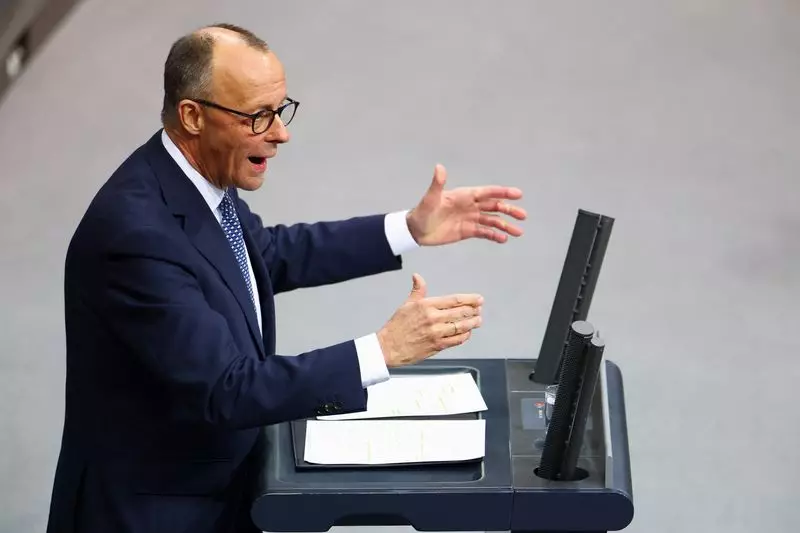On Tuesday, Germany’s key political parties will present their manifestos, setting the stage for a snap election on February 23. This election follows the collapse of Chancellor Olaf Scholz’s three-party coalition, a move that many perceive as a significant blow to one of the country’s least favored leaders in recent history. As the electorate prepares to cast their votes, they will be considering not just individual party proposals but also a broader tension culminating from the rise of far-right sentiments in the nation. The manifestos being unveiled are expected to address critical issues facing the country as it grapples with economic stagnation, geopolitical tensions, and a complex domestic resettlement scenario.
The urgency of the situation cannot be overstated. With Germany facing a projected economic contraction for the second consecutive year and established industrial players, like Volkswagen, grappling with fierce international competition, the stakes are high. The electoral response to these economic troubles will be indicative of the public’s willingness to back traditional parties versus new, potentially extreme alternatives.
As political campaigning gains momentum, parties will clash over differing economic strategies. Friedrich Merz, the conservative frontrunner from the Christian Democratic Union (CDU), advocates for substantial tax reductions—both on personal income and corporate profits—while proposing lower electricity prices to catalyze economic rejuvenation. Nevertheless, he has hinted at adhering to the so-called “debt brake,” a constitutional provision aimed at limiting public borrowing. Advocates of the debt brake highlight its importance in maintaining fiscal stability, yet its critics argue it restricts necessary investments during pivotal economic moments.
On the other hand, the Social Democrats (SPD) are poised to challenge Merz’s fiscal conservatism with a more aggressive approach to public policy. They champion reforms to the debt brake itself, positioning it as an impediment to fostering domestic growth. In a bid to attract private investment, the SPD has introduced proposals to modernize infrastructure, grounded in an off-budget fund of 100 billion euros, and aims to promote a “Made in Germany” premium, designed to enhance national industrial investment and support economic recovery.
The Ukraine Conflict: Integrating Defense with Diplomacy
Equally significant is the issue of Germany’s role in the ongoing conflict in Ukraine. Under Scholz, defense spending has soared, solidifying Germany’s place as the second-largest military ally of Ukraine after the United States. Merz is advocating for an escalated military support initiative, specifically calling for the provision of Taurus missiles to Ukraine. Such proposals highlight a potential schism in German foreign policy—while some see increased military support as a moral imperative, others, including Scholz, express caution over escalating aggression that may draw Germany closer to direct conflict with Russia.
Conversely, the far-right Alternative for Germany (AfD) party stands in stark contrast, championing an end to all arms deliveries to Ukraine and promoting a strategy aimed at restoring amicable ties with Russia. This divergence encapsulates the polarized views on national security and foreign relations, reflecting broader ideological divisions within the electorate.
Migration remains a contentious topic, particularly considering Germany’s historical context of having accepted a significant influx of migrants during the harrowing crisis of 2015. However, the political climate has shifted dramatically. The country has since reinstated border checks and adopted a more stringent approach to immigration policy. Merz’s proposals to turn away migrants at the borders and process asylum claims in third-party countries illustrate a substantial pivot from previous practices. This raises critical questions about the moral implications of such strategies and their impact on humanitarian efforts.
In light of these developments, the atmosphere leading up to the upcoming election underscores significant challenges. Voters are privy to varying approaches regarding the economy, defense, and migration, with the potential for seismic shifts in Germany’s political landscape. As parties unveil their visions, the electorate’s response may reshape not only Germany but also the future trajectory of European politics.

